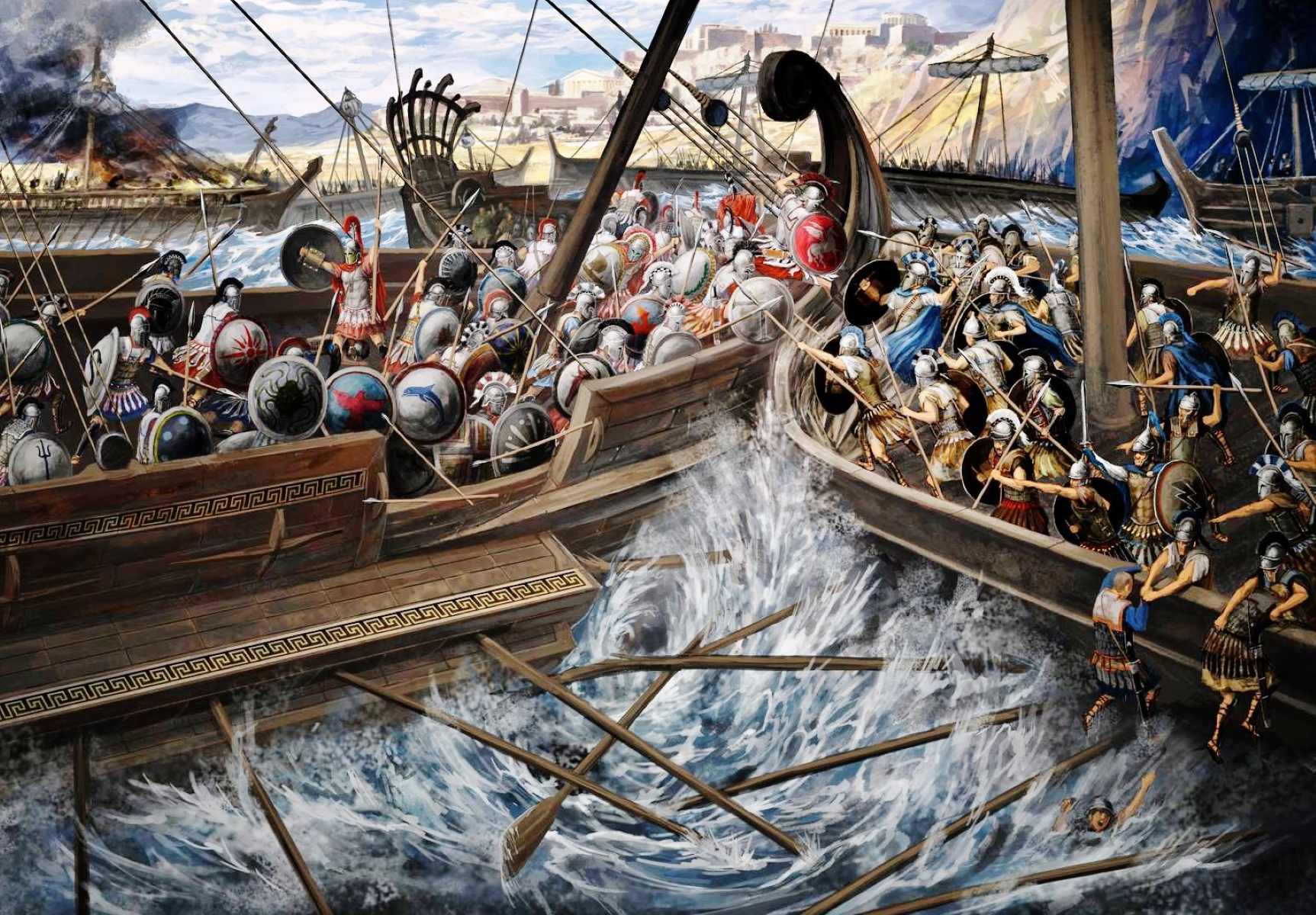
What was the Battle of Alalia? The Battle of Alalia was a significant naval clash that took place around 540 BCE. It involved the Greek Phocaeans and a coalition of Etruscans and Carthaginians. This battle occurred near the coast of Corsica, in the Tyrrhenian Sea. The Greeks aimed to expand their trade routes and influence, while the Etruscans and Carthaginians sought to protect their own interests. Despite the Greeks achieving a tactical victory, they suffered heavy losses, leading to their eventual withdrawal from Corsica. This battle marked a pivotal moment in ancient Mediterranean history, influencing the balance of power among these ancient civilizations.
Key Takeaways:
- The Battle of Alalia, fought in 540 BCE, saw Greeks face off against Carthaginians and Etruscans. Despite winning, the Greeks suffered heavy losses, marking the decline of their influence in the Mediterranean.
- The battle highlighted the importance of naval power and alliances in ancient warfare. It also showcased the resilience and adaptability of ancient civilizations, shaping the power dynamics of the Mediterranean.
The Battle of Alalia: An Overview
The Battle of Alalia was a significant naval conflict that took place around 540 BCE. This clash between the Greeks and the combined forces of the Carthaginians and Etruscans had far-reaching consequences for the control of the Mediterranean Sea.
- The battle occurred near the coast of Corsica, close to the Greek colony of Alalia.
- The Greek fleet was led by Phocaeans, who were originally from Asia Minor.
- Carthaginians and Etruscans joined forces to oppose the Greek expansion in the western Mediterranean.
- The battle is considered one of the earliest recorded naval battles in history.
- The Greeks used penteconters, ships with fifty oars, in the battle.
The Combatants
Understanding the key players in the Battle of Alalia helps to grasp the broader geopolitical context of the time.
- The Phocaeans were known for their seafaring skills and established colonies across the Mediterranean.
- Carthage was a powerful city-state in North Africa, known for its maritime prowess.
- The Etruscans were a dominant civilization in Italy before the rise of Rome.
- The alliance between Carthage and the Etruscans was formed specifically to counter Greek influence.
- The Greek colony of Alalia was strategically important for controlling trade routes.
The Course of the Battle
The events of the battle itself are both dramatic and pivotal, influencing the course of Mediterranean history.
- The Greeks faced a combined fleet of around 120 Carthaginian and Etruscan ships.
- Despite being outnumbered, the Greek fleet of 60 ships fought fiercely.
- The battle lasted for several hours, with heavy casualties on both sides.
- The Greeks managed to sink many enemy ships but lost a significant portion of their own fleet.
- The outcome was a pyrrhic victory for the Greeks, meaning they won but at a great cost.
Aftermath and Consequences
The aftermath of the Battle of Alalia had lasting effects on the power dynamics in the Mediterranean region.
- The Phocaeans abandoned Alalia and relocated to the colony of Elea in southern Italy.
- Carthage and the Etruscans strengthened their control over the western Mediterranean.
- The battle marked the beginning of the decline of Greek influence in the region.
- The Carthaginians and Etruscans continued to dominate maritime trade routes.
- The conflict set the stage for future confrontations between Greek and Carthaginian forces.
Cultural and Historical Impact
The Battle of Alalia left a lasting legacy in both historical records and cultural memory.
- Ancient historians like Herodotus documented the battle, highlighting its significance.
- The battle demonstrated the importance of naval power in ancient warfare.
- The Greek strategy and tactics during the battle influenced later naval engagements.
- The conflict showcased the strategic value of alliances in ancient geopolitics.
- The battle is often cited as an example of the fierce competition for control of the Mediterranean.
Lessons from the Battle
The Battle of Alalia offers valuable lessons about strategy, leadership, and the complexities of ancient warfare.
- The Greeks' ability to fight effectively despite being outnumbered is a testament to their naval expertise.
- The alliance between Carthage and the Etruscans highlights the importance of cooperation in achieving common goals.
- The heavy losses suffered by the Greeks underscore the high stakes of naval battles.
- The relocation of the Phocaeans to Elea illustrates the resilience and adaptability of ancient civilizations.
- The battle's long-term impact on Mediterranean power dynamics shows how a single conflict can shape history.
The Battle's Lasting Impact
The Battle of Alalia wasn't just a clash of ships; it reshaped the Mediterranean's power dynamics. This naval battle, fought around 540 BC, saw the Phocaeans facing off against the Carthaginians and Etruscans. Though the Phocaeans claimed a tactical victory, their losses forced them to abandon Corsica. This retreat marked the end of Greek expansion in the western Mediterranean.
The battle's outcome strengthened Carthaginian and Etruscan influence, setting the stage for future conflicts. It also highlighted the importance of naval power in ancient warfare. The Phocaeans' innovative use of triremes showcased advancements in shipbuilding and tactics.
Understanding this battle helps us appreciate the complex interplay of cultures and politics in ancient times. The Battle of Alalia remains a pivotal moment, illustrating how a single event can alter the course of history.
Frequently Asked Questions
Was this page helpful?
Our commitment to delivering trustworthy and engaging content is at the heart of what we do. Each fact on our site is contributed by real users like you, bringing a wealth of diverse insights and information. To ensure the highest standards of accuracy and reliability, our dedicated editors meticulously review each submission. This process guarantees that the facts we share are not only fascinating but also credible. Trust in our commitment to quality and authenticity as you explore and learn with us.


